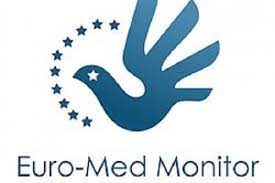Morocco’s National Human Rights Council (CNDH), a constitutional and independent rights watchdog, has published a detailed report on its fact-finding mission to Nador where it has talked to public authorities, injured migrants, health workers and civil society activists and conducted examinations of the bodies of dead migrants at the morgue and investigated videos.
The CNDH report vindicated the authorities’ version of events confirming the death toll at 23 migrants due to asphyxiation at the narrow border gateway after a violent storming attempt in which migrants, mostly from Sudan, used sticks and threw stones at public authorities leaving 140 among them injured.
The CNDH noted the emergence of a new group among the migrant communities in Nador who are waiting for a chance to cross the fence to Melilla. A wave of Sudanese and Chadian migrants started arriving in the area from mid-2021. They are mostly men aged under 35 with the absence of women and children among them.
Unlike migrants from West Africa, East African migrants adopted violent tactics and blocked alleys leading to their bases in the forest, while engaging with authorities, going as far as taking five public authority agents hostage on June 18 after they responded violently to an operation to disperse their camps in the forests.
Hostage taking forced authorities to negotiate and secure the release of four whose helmets and belongings were confiscated by migrants. The “physical integrity” of the remaining security force member was “seriously violated,” and 56 other law enforcement members were injured in the operation.
On June 23, migrants retreated 20 kilometers away from Melilla. Authorities were met with stones and violent response as they attempted to disperse them. 116 public force members were injured in this operation.
The next morning, in the run up to the tragedy, 2000 migrants marched violently armed with sticks and bladed weapons and carrying bags full of stones. Authorities had to retreat in the face of such a large number of attackers limiting the use of force to sticks and tear gas only. The migrants stormed the fence and the narrow border gate leading to a stampede as many asphyxiated.
CNDH also deplored that some NGOs and media in good or bad faith used videos that have no relation to the incident while others showed half-truths.
The rights watchdog examined videos taken by authority agents showing Sudanese migrants taking a security force member hostage while throwing stones in large numbers in an organized way that reflects tactical experience.
At least 600 sticks were seized by authorities in the wake of the attack while security forces responded with only tear gas and sticks.
A video shared on social media showing a security force member hitting a migrant was “an isolated individual action,” authorities told CNDH, which however said such an act was “unjustifiable.”
CNDH also spoke to medical staff who confirmed the dispatching of 20 ambulances, adding that urgent surgeries were carried out and medical care was provided.
Five migrants died in the stampede and 18 succumbed to their injuries in hospital as the main cause of death was asphyxiation in the stampede as people fell on each other.
The prosecutor told CNDH that the use of force was proportionate by security forces who were outnumbered by well-organized migrants violently attacking them, using stones and sticks.
The 65 migrants who were brought before justice had guarantees for fair trial and an anatomy is ongoing to determine more precisely the cause of death of the migrants.
DNA analyses were also carried out to identify them and no migrants has been buried yet, contrary to many false reports by Spanish media.
The CNDH concluded its report by a plea for Morocco to negotiate a new partnership with the EU that breaks away with the security approach in line with Marrakech declaration for an orderly migration that puts human rights at the forefront.
Externalizing border control by the EU will only lead to more tragedies, it said, urging a new human approach towards migrants fleeing conflict.
CNDH also stressed the need for joint action against human trafficking networks that trade in the suffering of refugees and migrants.



